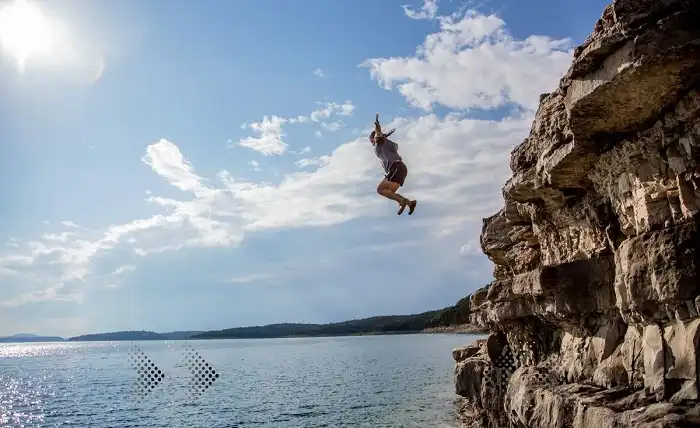Diving Split Face: A Horrific Accident That You Should Avoid

Diving is a thrilling sport that involves jumping from a high platform or cliff into the water. It can be a fun and exhilarating activity, but it also comes with many risks and dangers. One of the most gruesome and shocking accidents that can happen to a diver is the diving split face, which is when the diver’s face is literally split in half by the impact of hitting the water or a hard surface.
What Causes Diving Split Face?
Diving split face can occur when the diver makes a mistake in their technique, timing, or location. Some of the possible causes are:
- Diving from too high: The higher the diver jumps from, the faster they will fall and the greater the force of impact will be. If the diver does not enter the water at a perfect angle, they can hit the water with their face instead of their hands or feet, causing severe trauma to their facial bones and tissues.
- Diving into shallow water: The diver may not realize how shallow the water is or may misjudge the depth. If they dive into water that is not deep enough to cushion their fall, they can hit the bottom with their face and suffer from blunt force trauma or fractures.
- Diving into an obstacle: The diver may not see or avoid an obstacle in the water, such as a rock, a pier, or a boat. If they collide with an obstacle with their face, they can suffer from lacerations, punctures, or crush injuries.
- Slipping before diving: The diver may lose their balance or footing before jumping off the platform or cliff. If they slip and fall, they may hit their face on the edge of the platform or cliff, or on another object on the way down.
What Are The Consequences Of Diving Split Face?
Diving split face is a life-threatening injury that can cause permanent damage or death. Some of the possible consequences are:
- Severe bleeding: The diver may lose a lot of blood from their facial wounds, which can lead to shock, organ failure, or death.
- Infection: The diver may get infected from bacteria or debris in the water or on the surface that they hit. Infection can cause inflammation, fever, sepsis, or death.
- Brain damage: The diver may suffer from brain damage due to lack of oxygen, swelling, bleeding, or pressure in the skull. Brain damage can cause coma, paralysis, memory loss, cognitive impairment, or death.
- Facial disfigurement: The diver may have permanent scars, deformities, or loss of facial features due to the injury. Facial disfigurement can affect the diver’s appearance, self-esteem, social interactions, and quality of life.
How To Prevent Diving Split Face?
Diving split face is a rare but horrific accident that can be prevented by following some safety tips and precautions. Some of them are:
- Check the water depth and conditions before diving: The diver should always make sure that the water is deep enough and clear of any obstacles before diving. They should also avoid diving in rough or murky water that can impair their vision or judgment.
- Use proper diving technique and equipment: The diver should always dive with their hands or feet first and keep their body straight and aligned. They should also wear protective gear such as goggles, helmet, wetsuit, and life jacket to reduce the risk of injury.
- Do not dive alone or under the influence: The diver should always have a buddy or a professional instructor with them when diving. They should also avoid diving when they are drunk, high, tired, or sick.
- Seek medical attention immediately if injured: The diver should call for help and get medical attention as soon as possible if they suffer from any injury while diving. They should not try to move or treat themselves unless instructed by a medical professional.
Diving split face is a terrifying accident that can happen to anyone who dives recklessly or carelessly. It can cause severe pain, suffering, and death. Therefore, it is important to be aware of the risks and dangers of diving and to take all the necessary measures to prevent it. Diving can be a fun and exciting sport, but only if done safely and responsibly.



